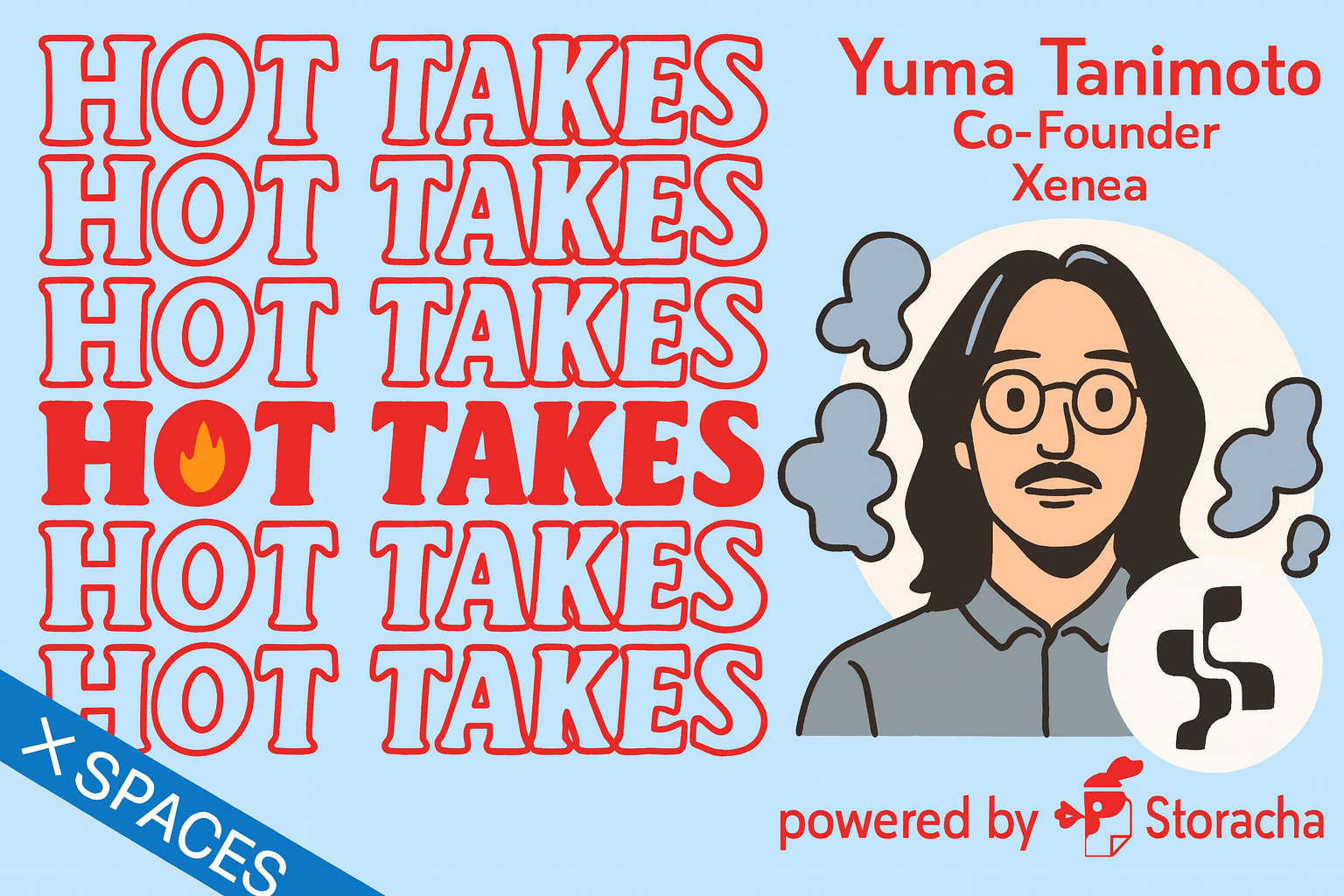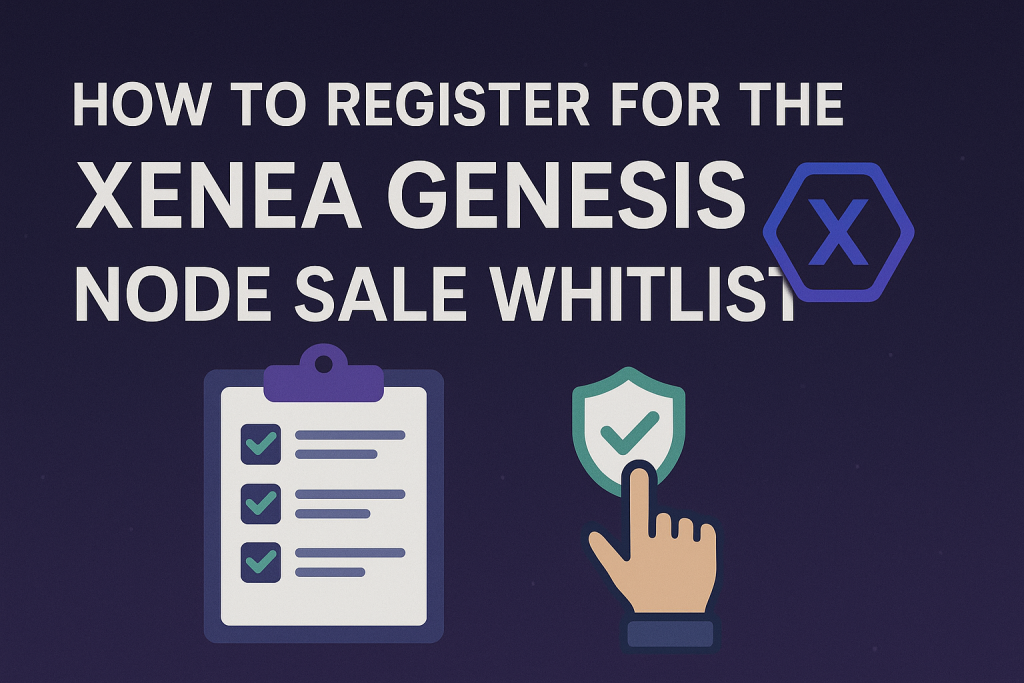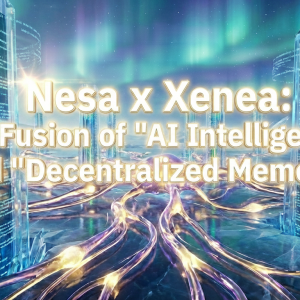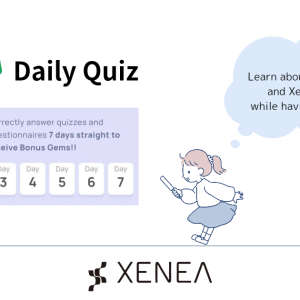【Storacha × Xenea】Ending Big Tech’s Dominance: The Web3 Revolution to Reclaim Data Ownership

In this X-Space session, the grand theme of building a decentralized internet was the focus, with a dialogue between Yuma, co-founder of Xenea, and Alex, co-founder of Storacha.
It’s starting soon, join us!
🎙️Our partner,Storacha ,invited Yuma to their X Space. It will happen at 12:00, Aug 21 UTC.
🔽https://t.co/XulDk5qnJe https://t.co/rwxMr85OE8
— Xenea (@Xenea_io) August 21, 2025
The conversation began by raising concerns about the dominance of centralized tech giants over data, and then moved on to envisioning a future internet where users truly own their own data and digital assets.
It became clear how the two companies are building decentralized storage with different approaches, yet complementing one another to create a user-friendly, secure, and accessible decentralized infrastructure. From their personal passions to technical challenges, and all the way to concrete products and future roadmaps, their vision and dedication to a Web3-powered “free and fair internet” were explored in depth.
Pioneers of the Decentralized Internet
This X-Space brought together co-founders from two of the most talked-about Web3 projects—Xenea and Storacha—to discuss their vision for the decentralized internet. Let’s first introduce who they are.
The Diplomat of Web3: Xenea’s Yuma
Yuma, co-founder and Chief Strategy Officer of Xenea, describes himself as “the diplomat of Xenea, or even of Web3 itself.”
Splitting his time between Tokyo and Cairo while frequently traveling across West Africa, he engages with a wide range of people—from military commanders to local street vendors—practicing what he calls “diplomacy.”
Xenea is building a storage layer specifically for AI DePIN and also provides a wallet service with over four million users. These efforts mainly target the “next billion” users in the Global South.
The Veteran of Decentralized Storage: Storacha’s Alex
Alex, co-founder of Storacha, modestly admitted he doesn’t have a glamorous “diplomat” title like Yuma, but revealed that he has traveled the world twice.
He previously contributed to the launch of Web3 Storage and NFT.storage, two of the most widely used storage solutions in Web3. Coming from Protocol Labs, he also worked on IPFS and Filecoin before developing Storacha as a superior storage solution.
Based in Cyprus, he often travels to the U.S. since his co-founder is based in Los Angeles.
Envisioning the Internet of the Future
The first major question asked during the X-Space was what kind of internet they imagine in ten years. Both showed a clear challenge to the existing centralized model and shared user-centric visions.
Breaking Walls, Building Trust
Yuma described his vision as one that “removes walls and barriers on the internet while maintaining trust.”
He envisions an invisible infrastructure where creators, communities, and AI systems don’t have to worry about data centralization—it just works, fast, reliable, and free of gatekeepers. He hopes that in the future people will laugh at how the world’s knowledge and creativity used to be bottlenecked by just five major providers.
True Ownership of Your Data
Alex shared a similar vision: an internet where users can “actually own what’s theirs.”
This includes not only photos and music, but also memories, apps, and even personal AI assistants. He compared big tech companies to landlords who lock away data and charge rent.
In contrast, ten years from now he wants the internet to feel like “your own home”—where you own the keys, decide who enters, and cannot be evicted. Together, they are building an internet that is fun, fast, open, and truly yours.
Passion Beyond Technology
They were also asked what dreams they would be pursuing if they weren’t currently building the future of Web3—a question that revealed their humanity and passions.
Alex: A Life of Health and Wellness
Alex said that if he weren’t in Web3, he’d be working in fitness and wellness, helping people strengthen body and mind, and live healthier, happier lives. He once trained as a gymnast and worked as a table tennis coach, skills he would like to bring into that space.
Yuma: Fairness, Rescue Dogs, and Snowboarding
Yuma said he likely would still be pursuing the redistribution of power, though through culture or diplomacy instead of technology. For him, the key question is “how to make access and ownership fair.”
On a more personal note, he surprised the audience by saying that if not in Web3, he might be running a dog rescue shelter and a snowboard shop in the snowy mountains of Japan.
The Complementary Partnership Between Storacha and Xenea
Both Storacha and Xenea are building decentralized storage infrastructure, but with different focuses. Here’s how they complement each other.
Combining Hot Data and Dynamic Data
Yuma explained that Xenea focuses on dynamic data—data that changes in real time—while Storacha specializes in hot data, meaning high-speed decentralized hot storage.
Since dynamic data often becomes hot data, Storacha provides the solutions needed to handle it. Their approaches don’t overlap but rather complement each other, optimizing decentralized storage workflows to support all kinds of datasets.
User-Centric, Simple Infrastructure
Alex added that both share the same vision: to provide a very easy-to-use decentralized infrastructure.
While decentralized systems are powerful, they are currently too complex for ordinary users. For the technology to change the world, it must be simple, reliable, and accessible to all.
He emphasized that while Storacha builds a fast object storage network with permissions and ownership protocols, Xenea brings dynamic data—together, they amplify each other’s strengths.
Ultimately, the goal is to make decentralized infrastructure “as easy as sending a WhatsApp message.”
Making the “Impossible” Possible in Five Years
They were asked: in five years, what seems impossible today but will be possible thanks to Xenea and Storacha’s infrastructure?
AI Labs and User-Owned Data
Yuma pointed to AI. Currently, training large-scale models requires moving terabytes of data to centralized clouds—slow, expensive, and fragile.
But within five years, he expects the same process will run on Xenea’s decentralized dynamic storage with Storacha’s support. Data will be editable, distributed across nodes, and accessed as if it were local.
This will enable community-driven, community-powered, and community-owned AI labs, pooling global resources without relying on a single vendor.
True Ownership of In-Game Assets
Alex also highlighted AI assistants, noting how today most store data with big tech companies like OpenAI. In the future, he insists user data—whether birthday videos or health records—should be portable and user-owned.
Instead of going into “walled gardens,” users would bring their own storage and permit AI assistants to use it when needed, even earning rewards for doing so.
He also touched on gaming, envisioning a world where users truly own their in-game characters. Unlike the past where NFTs sometimes vanished, they want to build enforceable off-chain storage tied directly to asset ownership, extending real ownership beyond blockchain tags.
Opening New Horizons for Creators and Builders
How will Xenea and Storacha empower creators and developers?
Freedom and Fair Incentives
Yuma summed it up in one word: freedom. Not just any freedom, but freedom from big tech companies, freedom to earn incentives as part of the ecosystem, and freedom to build any app or dream.
Currently, centralized systems capture most of the value while creators work tirelessly for them. But with decentralized infrastructure, builders will finally be able to receive fair compensation.
Storacha’s Existing Tools and Roadmap
Alex explained that Storacha already provides useful tools, such as backing up Blue Sky social identities via BSky.Storage, ensuring users can recover lost personal data servers.
They also offer a simple drag-and-drop web app (like Dropbox), along with CLI and JavaScript SDKs, with Go and Python clients coming soon. A Telegram backup app is also on the way to help users get started quickly.
Getting Hands-On with Xenea and Storacha Today
Both projects already offer products and community participation.
Xenea Wallet Surpasses 4 Million Users
Yuma highlighted the Xenea Wallet, released in September last year, which has already surpassed 4 million downloads.
With Alchemy Pay integration, users can now move funds in and out without leaving the wallet. Yuma envisions it not just as a crypto wallet, but as a “super app” like Web3’s Uber or WeChat, eventually integrating AI creative tools.
Easy Access and Community Engagement with Storacha
Alex encouraged newcomers to visit Storacha.network and click “Start storing.” After logging in, users can drag and drop files like Dropbox. Developers can integrate the SDK in just a few lines of code.
Storacha has also revamped its ambassador program, offering quizzes and opportunities to join the “Racha” movement, plus referral rewards where friends earn Racha loyalty points for joining.
Exciting Announcements Ahead
Both projects have key milestones planned for late 2025.
Xenea’s Mainnet and TGE
Yuma announced that Xenea will soon launch the final testnet version, followed by a mainnet launch and TGE (Token Generation Event) in Q4. He joked that this may be “too much for one quarter,” but affirmed their determination.
Storacha’s Privacy Features and Telegram Backup App
Alex shared that Storacha is working with major customers and will soon make announcements. They’re also rolling out privacy features for paid plans, including access control and end-to-end encryption.
Additionally, they’re privately testing a new decentralized network for long-term, affordable storage, with plans to launch cold storage by year’s end.
Most excitingly, Alex looks forward to launching the Telegram backup app, which will protect chats from hacks or account loss. Users will even earn Racha loyalty points for backing up chats.
The Real Challenges of Building Decentralized Protocols
Both agreed that the biggest hurdles are not technical.
Diplomacy of Communication and Coordination
Alex said building a storage protocol is “deep tech and never easy.” But the hardest part isn’t the tech—it’s the diplomacy of communication among decentralized actors.
Coordinating people, tests, and deployments to ensure the network is reliable enough for launch is the true challenge.
Resource Allocation and the Human Side
Yuma agreed, stressing that “the hardest challenge is not technical.” Good developers can be found, but distributing resources fairly—talent, funding, tokens, block rewards—is far tougher.
He concluded that distribution is human and social, and therefore much harder than digital protocols.
Connecting with the Web3 Community
Yuma announced he will be attending DePIN Expo in Hong Kong next week, inviting listeners: “Find me in Hong Kong and I’ll buy you coffee.” He also noted that the Xenea team will join WebX in Japan, though the free coffee offer applies only in Hong Kong.
Alex joined in, saying he’d also buy coffee if anyone met him in Cyprus—ending the X-Space on a cheerful note.
hot topic
Whitelisting is currently open for the XENEA Genesis Node Sale.
Currently, whitelist registration is open for the XENEA Genesis Node Sale, an NFT that allows you to automatically receive rewards simply by holding it in your wallet.
Registration Period (UTC): August 20, 17:00 – August 29, 13:00
 How to Register for the XENEA Genesis Node Sale Whitelist
How to Register for the XENEA Genesis Node Sale Whitelist


Comment